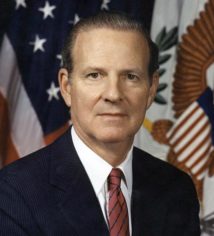Called the “Action Plan on Military Mobility”, the plan hopes to draw benefits from deteriorating relations with Russia. The proposal was careful not to no mention Russia by name in the March 28 communication to the European Parliament and the European Council however.
Meanwhile, an armored convoy including tanks and Bradley fighting vehicles was spotted this week on German public roads, the US Department of Defense revealed in a press release. The convoy left from Grafenwoehr Training Area, to Hohenfels Training Area, using public roads for the first time in 15 years, April 22-25.
“2nd ABCT [US 2nd Brigade Combat Team] moved over 950 vehicles approximately 60 kilometers along multiple routes in 22 separate convoys as part of this year’s Combined Resolve exercise,” the release stated.
The “military Schengen” proposal has been decribed as “a key prerequisite” to build European defense capabilities outside of NATO, to include even countries that support the alliance objectives. While EU member states enjoy free movement because of Schengen, there are a number of bureaucratic hurdles facing the free flow of military equipment from for example Portugal to the Baltics.

NATO load class signs from the Cold War erected at the Rhine Bridge in Worms, Germany, giving information about weight and height limits. (FelixH~commonswiki via Wikipedia)
By next year, European Commission officials say they will research what specific logistics projects are needed to enable greater mobility of NATO military gear. Defence News reported that the EU planning document “invited” member states to “consistently take military requirements into account when building transport infrastructure”.
The document not only targets infrastructure, but “greater cooperation in the fields of shipping dangerous goods, customs and taxes, and cross-border movement permissions” according to DN. During the Cold War, an entire nomenclature of signs were erected all over Germany instructing tank commanders what bridges and roads would hold their vehicles’ weight.
NATO’s defence was centred around the Fulda Gap, during the Cold War, an area between the old Hesse-Thuringian border and Frankfurt am Main that contains two corridors of lowlands through which tanks might have driven in a surprise attack. The Fulda Gap is roughly the route along which Napoleon chose to withdraw his armies after defeat at the Battle of Leipzig.
Until the early 1990s, NATO existed ostensibly to counter the Soviet Union’s analogous alliance, the Warsaw Pact. The fall of the Soviet Union, left NATO without a mission.
In a 2014 interview with Bloomberg News, Russian Foreign Minister Sergei Lavrov explained how NATO came to ignore its previous commitments. “In my view, it all started … back in the 1990s, when in spite of all the pronouncements about how the Cold War was over and that there should be no winners yet, NATO looked upon itself as a winner,” Lavrov said. “All its commitments have been, to one degree or another, violated.”
He said Ukraine’s acceptance into NATO would amount to a setback for regional security, and explained the general Russian position on the question. “The attempts to draw Ukraine into NATO would be negative for the entire system of European security and we would be categorically against it.”
In December 2017, the National Security Archive at George Washington University published a series of declassified documents which revealed the strong assurances that were given to the dissolving USSR that NATO, in the words of then-Secretary of State James Baker, would not advance “one inch eastward”.
Yet NATO has expanded to encompass no less than thirteen additional states, all of them in Eastern Europe. In 1999, the Czech Republic, Poland and Hungary joined; in 2004 the alliance expanded to include Bulgaria, Estonia, Latvia, Lithuania, Romania, Slovakia and Slovenia, while Albania and Croatia followed in 2009.
Given that the US agreements and US assurances have been all but ignored, Russia has understandably regarded subsequent NATO expansion as part of an aggressive policy designed to hem in its borders.
That perception was underlined in 2002, when the George W. Bush administration unilaterally pulled out of the landmark Anti-Ballistic Missile (ABM) Treaty. And not long after the Treaty was scrapped, the United States began selling or otherwise deploying missile systems across Eastern Europe.
The ABM Treaty was an arms control treaty between the United States and the Soviet Union on the limitation of the anti-ballistic missile (ABM) systems used in defending areas against ballistic missile-delivered nuclear weapons.
Not only has NATO expanded eastwards, but it conducts an array of joint military exercises just beyond Russia’s borders every year.
In 2016, NATO staged significant war games with 31 000 troops on Russia’s borders. For the first time in 75 years, German troops retraced the steps of the Nazi invasion of the Soviet Union. Alarmed, German Foreign Minister Frank-Walter Steinmeier openly accused NATO of “war-mongering” against Russia.
Washington’s argument that the deployment of anti-ballistic batteries in Romania and Poland were intended to defend against Iran sounds disingenuous, especially after the nuclear deal with Teheran effectively ended the Iranian nuclear weapons program.
Moreover, NATO’s strategic analysts keep raising the prospect of a “Russian attack” on the Suwalki Gap, a 80km patch of relatively flat, difficult to defend countryside, straddling Poland and Lithuania.
It is the only land connection between the Baltic states of Latvia, Lithuania and Estonia — all of which are in the EU and NATO — and their European allies. The area has become one of the most militarised in Europe. The boost by NATO came after a 2016 report by the US RAND think-tank said it could take Russia just 60 hours to capture the Estonian and Latvian capitals. Estonia and Poland are proportionally now the biggest contributors to NATO.

Lieutenant General Benjamin Hodges III former commanding general, United States Army Europe (USAREUR). He is currently the Pershing Chair in Strategic Studies at the Center for European Policy Analysis.
The fearmongering “to keep the Suwalki Gap open” has boosted NATO’s build-up. “We are committed to the sovereignty of Lithuania, the sovereignty of Poland and all the other countries, so we will do whatever it takes to re-establish that,” Lt Gen Hodges, the former commanding general of the US Army in Europe, told NBC while he was still serving as head of US forces in Europe.
But Alexy Muraviev, a Russian strategic defence affairs expert from Curtin University told news.com.au that he sincerely doubted Moscow would ever annex the Baltics. “Russia would have no problem overrunning the Baltics but the geopolitical fallout would offset any territorial gains. It would be political suicide.”
The real risk may be in fact if NATO moved offensive gear into the Baltics, or blocked sea lanes or access to Kaliningrad. It is still of great strategic importance to Moscow. It houses the Russian Baltic Fleet at the port of Baltiysk and is the country’s only ice-free European port.

















